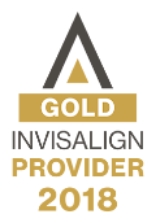
Snoring – Sleep Apnea
Sleep better with help from our team at Discovery Dental
Click Now For Your FREE Sleep Apnea ConsultationSchedule Your FREE Sleep Apnea Consultation
Stop Snoring & Sleep Apnea – Overview
Do you have sleep apnea? If you do, you might stop breathing involuntarily many times per night. With obstructive sleep apnea, patients stop breathing for periods of about 10–30 seconds each time before their bodies force a breath—often with the sound of snoring or gasping for air while sleeping.
Sleep apnea causes repeated oxygen deprivation during the night. Snoring and sleep apnea can interrupt your sleep several times at night, depriving your body of vital oxygen that your body needs to heal itself while you are resting. And if you have it, you probably won’t remember those held breaths in the morning—you’ll just be left with fatigue and other signs and symptoms of sleep apnea. What you may need is better sleep quality, not more sleep.
Sleep apnea is often caused by airway blockage in the throat or the nose. Rarely, it is caused by a nerve or muscle problem that interrupts natural breathing, which is called central sleep apnea.
Remember is that your sleep apnea dentist at Discovery Dental clinic has extensive training and effective sleep apnea solutions. You may be able to get relief very quickly, so call your family dentist today for a FREE snoring and sleep apnea consultation.
What Causes Snoring?
Approximately two-thirds of Americans snore during sleep. Snoring happens when air cannot freely flow in and out as you breathe while you sleep. When your airway is restricted or partially blocked, breathing causes the upper airway tissues to vibrate, which is the sound you hear when someone snores. The vibration creates a sound that ranges from relatively soft to very loud.
Snoring can not only keep your partner up at night; loud snoring can also restrict the airflow into your lungs. Snoring at night can also make you or your bed partner irritable and exhausted during the day-second hand sleep apnea (like secondhand smoking). Many people who snore also suffer from sleep apnea which is a serious medical condition.
Should I Be Worried About Snoring and Sleep Apnea?
Sleep apnea is a cause for concern because it severely limits oxygen flow while you are asleep. If you’re worried, our dentist can provide an examination to see how we can help you breathe and sleep better.
The most common type of sleep apnea is called OSA obstructive sleep apnea. During obstructive sleep apnea, the back of the throat is blocked by the muscle or tissue in the back of your throat, closing off your airway, causing you to stop breathing while asleep. Your body immediately wakes up so you can start breathing again.
Health Concerns Related To Snoring and Sleep Apnea
Some people might not think about sleep apnea as a serious medical problem. Obstructive Sleep Apnea or OSA and other forms of sleep apnea can be seriously detrimental to your general health. The disruption caused to achieving a restful night sleep by snoring and sleep apnea can lead to conditions such as:
- Heart Attack.
- Stroke.
- Weight Gain.
- High Blood Pressure.
- Alzheimer’s.
- Headaches and Migraines.
- Impotence or Loss of Libido.
- Depression.
- Anxiety.
- Difficulty Controlling Diabetes.
- Irritability and Aggressive Behavior.
- ADHD.
- Acid reflux.
- Loss of Focus and Memory.
- Abnormal Facial Growth in Children.
- Tooth Grinding at Night or Bruxism.
- Unusual Daytime Fatigue.
Some scientific studies have shown that sleep apnea can shorten your life by as much as 12 years. Don’t let sleep apnea go untreated! Visit our Top 10 Tips on the How to Stop Snoring page or contact us for a FREE sleep apnea consultation to find out more.
Click Now For Your FREE Sleep Apnea Consultation
Why Visit a Dentist For Sleep Apnea Treatment?
Dr. Vanama, your local dentist in Issaquah, WA, knows a lot about the structure of the mouth and sinuses and how that affects your breathing at night. Our snoring and sleep apnea team can help you find a sleep apnea treatment that works best for you.
Some of our effective treatment options include the following:
Nasal Breathing Exercises and Decongestants
Breathing through your nose increases your oxygen intake by 10–20%. Nasal breathing helps warm the air before the air reaches your lungs. Nasal breathing also adds resistance to the air stream and keeps the air in the lungs longer, increasing the amount of oxygen that enters your bloodstream.
Invisalign Clear Aligners
Aligning your teeth can change the position of your teeth and increase the space available for your tongue in your mouth. Thereby preventing it from falling back and obstructing your airway; this helps keep the airway open and takes away the pressure of your teeth against your tongue.
Fotona Nightlase™
This type of non-surgical laser procedure uses a specific wavelength of light that helps shrink the tissues around your throat, so your tongue and other tissues don’t obstruct your airway.
Oral Obstructive Sleep Apnea Device
A custom dental appliance looks similar to a mouthguard and is carefully designed to position your jaw in a forward position that helps open your throat and airway.
Should I Be Worried About Sleep Apnea?
Sleep apnea is a cause for concern because it severely limits oxygen flow while you are asleep. If you’re worried, our dentist can provide an examination to see how we can help you breathe and sleep better.
The most common type of sleep apnea is OSA obstructive sleep apnea or OSA. During obstructive sleep apnea, the back of the throat is blocked by the muscle or tissue in the back of your throat, thereby closing off your airway, causing you to stop breathing while asleep. Your body immediately wakes up so you can start breathing again.
Call Discovery Dental Today to Stop Snoring and Treat Sleep Apnea!
We can help you breathe easier with our stop snoring and sleep apnea treatment options. Contact us today for a FREE stop snoring and sleep apnea consultation to see how our dental team can help you and your loved ones sleep through the night without worry!




